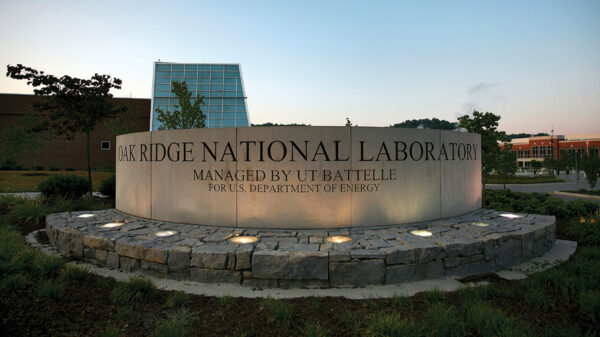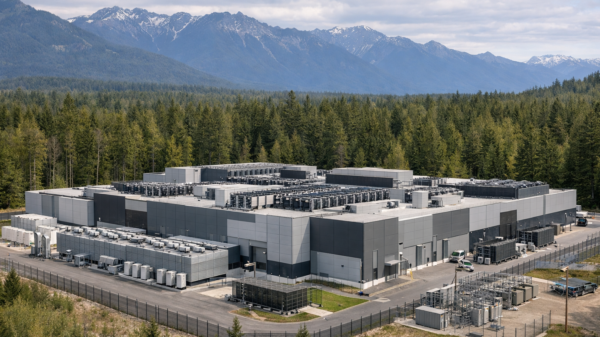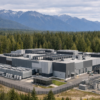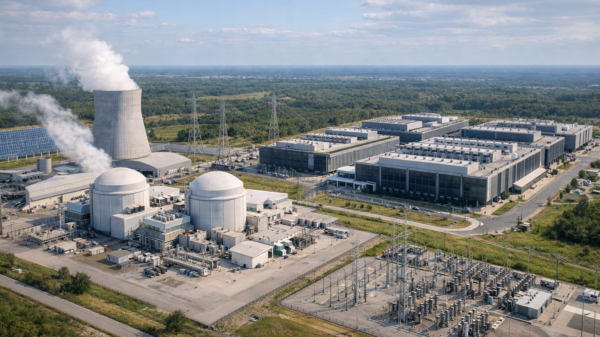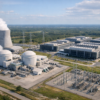Westinghouse Electric Company joined the growing list of provinces and companies getting involved in the construction of small modular nuclear reactors (SMR) on Thursday.
Westinghouse, a subsidiary of Toronto-based private equity firm, Brookfield Business Partners (TSX: BBU.UN) (NYSE: BBU), released its latest nuclear technology, the AP300 small modular reactor (SMR), which is a 300-megawatt electrical single-loop pressurized water reactor.
This design is derived from the advanced and proven AP1000 reactor and is the only SMR based on an operating plant with a similar design.
The AP300 SMR is a modular unit that incorporates the innovative ideas and operational expertise gathered from the global fleet of AP1000 reactors.
It will use the same technology as the AP1000, including the major equipment, structural components, passive safety features, proven fuel, and instrumentation and control systems.
Welcome to the SMR club @WECNuclear 🙌
The AP300 will use the same design and licensing methodology from the company's AP1000 reactor.
The compact design will also help reduce construction, operations, and maintenance costs. https://t.co/zFIfPsOqkf
— Office of Nuclear Energy | US Department of Energy (@GovNuclear) May 4, 2023
Read more: Canada launches $29.6M small modular reactor funding program to mitigate fossil fuels
Read more: Ontario considers large-scale nuclear power to cut carbon emissions
Westinghouse has developed a safety system to shut down reactor
The AP300 will also benefit from a mature supply chain, lessons learned from previous construction projects, the ability to quickly adjust power output, and the proven operations and maintenance procedures developed over 18 years of safe AP1000 reactor operation.
“The AP300 is the only small modular reactor offering available that is based on deployed, operating and advanced reactor technology,” said Patrick Fragman, president and CEO of Westinghouse.
“The launch of the AP300 SMR rounds out the Westinghouse portfolio of reactor technology, allowing us to deliver on the full needs of our customers globally, with a clear line of sight on schedule of delivery, and economics.”
Westinghouse has developed an advanced passive safety system that can automatically shut down the reactor safely without requiring any intervention from the operator.
This system eliminates the need for backup power and cooling supply, resulting in a simplified design, lower capital expenditures (CAPEX), and a smaller physical footprint. Similar to the AP1000, the AP300 is designed to operate for a period of 80 years or more.
The AP300 SMR design incorporates Westinghouse’s Gen III+ advanced technology, which has received regulatory approval in the United States, Great Britain, and China, and is compliant with the European Utility Requirements (EUR) standards for nuclear power plants. This offers licensing advantages and significantly reduces delivery risks for customers in the utility, oil and gas, and industrial sectors.
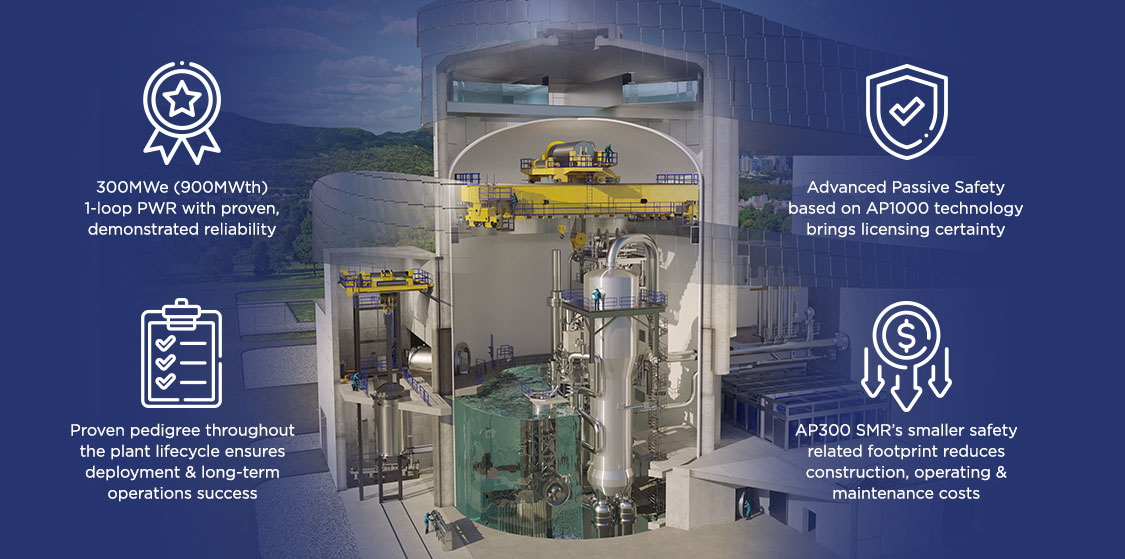
The AP300 SMR is a single-loop, 300-MWe pressurized water reactor that utilizes identical systems to the larger AP1000 reactor. Image via Westinghouse Electric Company.
Read more: Canada launches $29.6M small modular reactor funding program to mitigate fossil fuels
Read more: Ontario Power Generation partners with tech firms to build small modular reactor
Canadian provinces look deeper into SMR’s
Westinghouse anticipates receiving design certification for the AP300 by 2027, followed by site-specific licensing and construction of the first unit by the end of the decade.
The AP300 SMR provides reliable, safe, and environmentally friendly electricity, and can also be used for district heating and water desalination. Its ability to quickly adjust power output makes it well-suited for use alongside renewable energy sources.
Furthermore, the AP300 can support the development of a hydrogen economy by allowing for cost-effective and clean hydrogen production that can be integrated into the plant.
Westinghouse joins Ontario’s Canada Nuclear Laboratories as well as the Provinces of Saskatchewan and New Brunswick in exploring the possibility of constructing small modular reactors as an alternative to using natural gas for meeting the province’s growing electricity needs. The attempt is part of a concentrated initiative to decarbonize power grids and industrial facilities.
Saskatchewan intends to have an operational SMR by the end of the 2020’s, and may develop a larger SMR industry in the province in the future.
Follow Joseph Morton on Twitter
joseph@mugglehead.com







